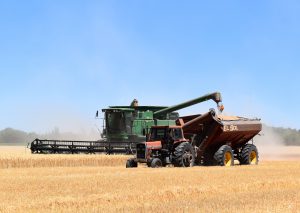
There are a lot of campaigns and organizations dedicated to alleviating extreme poverty found in the developing world. These same groups advocate for the provision of what the material poor often lack: clean water, decent housing, financial capital, nutrition, etc.
But this deficit of material goods, what we typically call “poverty,” is symptomatic of larger problems. People are not poor because they lack “stuff.” People are poor mainly because they do not have access to secure property rights, the rule of law, and the ability to start a formal business. If placed in an institutional framework with these advantages, many people in extreme poverty today would not be poor in the first place.
Another major, underlying reason for extreme poverty is the fact that the material poor are often disconnected from global markets. When people are able to exercise their comparative advantage and exchange many of their goods and services in the global economy, they flourish. When they cannot do so, they suffer privation.
What’s so scandalous is that the material poor are intentionally excluded from global markets by well-connected and influential interests. Agricultural tariffs and subsidies are a case in point. Large agricultural companies and their political enablers use tariffs to stifle their international competition by artificially increasing the cost of goods produced by the rural poor and making their import financially untenable.
These same companies exacerbate the challenges the poor face by securing agricultural subsidies from their governments. While this naked display of cronyism happens in many countries, it is a perennial event in the United States, which produces what’s known as the farm bill every five years or so. The subsidies provided in the farm bill are harmful for U.S. consumers and taxpayers in a number of ways, but they are absolutely devastating for the world’s poor.
The Acton Institute’s PovertyCure initiative has a video that further explains these issues and comments on why people’s exclusion from global markets is so harmful:
The pernicious effects of these agricultural tariffs and subsidies are felt far and wide in the developing world because so many people in material poverty are engaged in the agricultural sector. As recently as 2016, the World Bank estimated there were 500 million households engaged in small-scale farming globally, which equates to approximately two billion people. It’s these very same people that “make up a significant portion of the world’s poor who live on less than $2 a day.”
The degree of injustice and scandal surrounding agricultural tariffs and subsidies reaches a high note once one understands who actually benefits from them. While agricultural subsidies are pitched as a way to protecting small, family-owned farms, the reality is quite the opposite. According to Vincent H. Smith, director of the Agricultural Studies Program at the American Enterprise Institute, the largest and wealthiest 15 percent of farms within the United States capture 85 percent of all of its agricultural subsidies.
If we increasingly focus on the underlying reasons why people are poor, instead of merely supplying what they lack, then we can truly make progress by removing the barriers inhibiting their prosperity. Quickly phasing out and eliminating all agricultural tariffs and subsidies included in the United States’ farm bills would be a great start.
By allowing people around the developing world to simply employ their talents and trade the fruits of their labor within global markets, we will do more than rightfully acknowledge their God-given abilities, creativity, and intrinsic value. We might even realize the elimination of extreme poverty in our lifetime.

